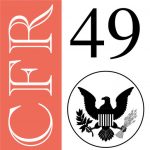Industry Certifications
We are proud to hold ourselves to the highest standards of quality and accuracy. We even invite third parties to audit our procedures on a regular basis. The certifications listed below ensure our clients have peace of mind that their products and their business are safe in our hands. Reach out to us to learn how our fulfillment expertise will help your business grow.
ISO 9001:2015
We respect the role we play in your business. We opted to get our ISO 9001:2008 certification as a show of our commitment to our clients and the level of service they expect from us. As one of only a handful of fulfillment houses to obtain this level of certification, our dedication to continuous improvement was validated by our recent advancement to ISO 9001:2015 certification, the new industry standard.
The International Organization of Standardization has set up the 9001:2015 certification so that a company:
- Demonstrates its ability to consistently provide services that meets UnitedFSI key quality metrics, customer and applicable statutory and regulatory requirements
- Enhances customer satisfaction through the effective application of the UnitedFSI quality management system, including processes for continuous improvement of the QMS and the assurance of conformity to customer and applicable statutory and regulatory requirements
- Offers clients a sense of security knowing that it has developed standard operating procedures that are audited and certified by a third-party firm
UnitedFSI uses these standards to demonstrate the ability to consistently provide products and services that meet customer and regulatory requirements.
FDA Registered – Food Facility Registered
The Federal Food and Drug Administration requires that domestic and foreign facilities that manufacture, process, pack or hold food, as defined in the regulation, for human or animal consumption in the U.S., must register with the FDA. This is done to assist the FDA in determining the location and source of potential or actual bioterrorism incidence or an outbreak of food-borne illness, and to permit the agency to quickly notify facilities that may be affected.
UnitedFSI recognized that we offer certain services that fall into this category and have since been an FDA registered facility in good standing.
IATA Dangerous Goods Certificate
The certification ensures that UnitedFSI has been approved to:
- Apply the IATA Cargo Dangerous Goods Regulations correctly
- Discern the legal aspects and the responsibility of shippers, agents, and airlines involved in transporting dangerous goods
- Identify and classify individual dangerous goods items
- Verify goods are properly packed, marked, and labeled
- Fill in and check the “Shipper’s Declaration for Dangerous Goods”
49 CFR Hazardous Materials Certificate
The certification ensures that UnitedFSI has been approved to:
- Understand the systematic program that ensures a hazmat employee has familiarity with the general provisions and is able to recognize and identify hazardous materials
- Has knowledge of specific requirements to functions performed
- Has a knowledge of emergency response information, self-protection measures and accident prevention methods and procedures
- Enhanced training with emphasis for the transportation of hazardous materials for Rail, Air Carrier, Vessel and Highway. (Part 174,175,176,177)
At UnitedFSI, we hold ourselves to the highest standards of quality and accuracy. That’s why it’s important for us to have a third party regularly audit our procedures. Our certifications ensure our clients have peace of mind that we consistently provide the best service to meet their unique needs. Contact us today to learn more about how UnitedFSI can help your business grow.
Class I Medical Devices
A Class I medical device are those devices that have a low to moderate risk to the patient and/or user. Today, 47% of medical devices fall under this category and 95% of these are exempt from the regulatory process. If a device falls into a generic category of exempted Class I devices, a premarket notification application and FDA clearance is not required before marketing the device in the U.S. However, the manufacturer is required to register their establishment and list their generic product with FDA. Examples include enema kits, elastic bandages, manual stethoscopes, and bedpans.

Class II Medical Devices
Class II medical devices are those devices that have a moderate to high risk to the patient and/or user. 43% of medical devices fall under this category. Most medical devices are considered Class II devices. Examples of Class II devices include powered wheelchairs and some pregnancy test kits.




